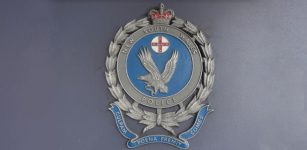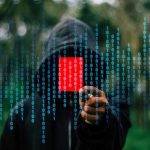Middle Eastern Organised Crime Squad to Shut Down as Police Target “Silent Crimes”

The NSW Middle Eastern Organised Crime Squad (MEOCS) was established in April 2006 in the wake of the December 2005 Cronulla Riots, which was the culmination of rising tensions between the Lebanese and Anglo-Australian communities.
The predecessor of the MEOCS was Task Force Gain, which was created in October 2003 in response to an outbreak of shootings in Sydney’s south-west. Within 12 months, Task Force Gain had led to 1069 arrests and 2384 criminal charges, primarily relating to drug and firearms offences.
But the last few years have seen a fall in violent crimes, including those allegedly linked to Middle Eastern organised crime groups. Violent crime in NSW is currently at its lowest level in forty-years.
What has not fallen, however, are cyber and financial crimes – which are costing the economy billions of dollars every year and causing substantial loss and distress to victims.
Shift in resources
As a result of the trend, the NSW Police Force has decided to disband the MEOCS and create in its place a generic ‘Gang Squad’ to combat all organised crime.
The police resources that are saved through the amalgamation will be directed towards fighting what Deputy Commissioner for Investigations and Counter Terrorism, David Hudson, calls “silent crimes”.
“These are the ones that happen behind closed doors,” Hudson says. “Sexual assault, child abuse, domestic violence, cyber crime, financial crimes, those crimes which aren’t as highly visible and the victims, for whatever reason, sometimes don’t want to go to the courts.”
Decision welcomed
Like the Asian Crime Squad, which was disbanded in 2014, the MEOCS had been criticised for focusing on, alienating and stigmatising a particular ethnic group.
Lebanese community leader, Dr Jamal Rifi, was highly critical of the decision to establish the MEOCS, stating: “Criminals are criminals and you fight the crime itself, you don’t fight the ethnic background of the crime”.
Lebanese Muslim Association (LMA) president Samier Dandan expressed the view that the squad not only created divisions and resentment in the community, but those who were targeted saw this as a badge of honour – even going so far as to get tattoos advertising the fact.
“We have always been against the naming of it but never had any concern about the objective of it”, Mr Dandan added.
Islamic Friendship Association president, Keysar Trad, agrees, saying ethnic descriptors tend to be “very divisive” and demonise a particular group. “The politicians opened Pandora’s box when they ethnicised crime a few decades ago,” he stated. “It didn’t solve any problems; it just led to scapegoating where we have sections of society pointing the fingers of blame at other sections of society.”
All of these leaders have now welcomed the decision to disband the MEOCS in favour of a singular Gangs Squad.
Crime no longer associated with ethnicity
Australia has a long history of associating criminal activity with particular ethnic groups.
In the 1970s, the focus of organised crime was around Italian groups such as the Calabrian mafia in country NSW.
In the late 1980s and the 1990s, the rise of Vietnamese gangs sparked the formation of an Asian Crime Squad.
Whereas in the early 2000s, the focus shifted towards Lebanese gangs in areas such as Bankstown and Punchbowl.
According to State Crime Command Assistant Commissioner, Mal Lanyon, organised crime is no longer as linked to particular ethnicities, with large multi-national criminal enterprises taking over where other groups left off. Mr Lanyon says the focus of these organisations has also shifted from drug offences and violent crimes, to financial and cyber crimes.
Lanyon says the focus on ethnicity-based police groups is inconsistent with this trend.
“There are restrictions of what we can target because if you don’t fall with the Middle Eastern organised crime definition or traditional definition of a gang, you don’t necessarily fall within either charter [gangs or MEOCS]”, Mr Lanyon said.
NSW Police believe the move towards focusing on activities rather than ethnicities is logical in the context of the changing face of crime.







